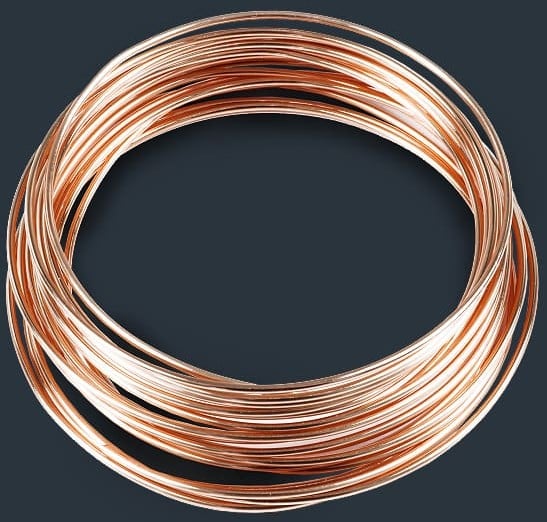Exploring the Diverse Applications of Copper Products in Modern Industries
From enhancing the effectiveness of electric systems to playing an important role in renewable power technologies, the flexibility of copper is evident. As markets progressively prioritize technology and sustainability, the diverse applications of copper necessitate a closer exam, particularly concerning their possible impact on future ecological techniques and technical advancements.
Electric Applications of Copper
Copper is an essential product in the electrical sector, representing approximately 60% of the overall need for non-ferrous metals globally - Copper Products. Its remarkable electric conductivity, which is virtually twice that of aluminum, makes it the recommended choice for a large range of electrical applications. From electrical wiring systems in residential and commercial structures to high-voltage power transmission lines, copper ensures effectiveness and integrity in electrical energy shipment
Along with circuitry, copper is essential to the production of electric parts such as generators, transformers, and motors. These elements utilize copper's thermal conductivity and malleability, essential for warmth dissipation and efficient efficiency. Additionally, copper's resistance to rust enhances the lifespan and toughness of electric systems, making it a cost-efficient remedy in the long term.
The development of renewable resource sources, such as solar and wind power, has actually further enhanced the need for copper in electrical applications. As markets shift towards lasting energy solutions, copper's duty comes to be much more critical. Generally, the versatility and efficiency attributes of copper solidify its condition as a foundation product within the electric field, driving development and efficiency across different applications.
Pipes and Piping Solutions
In modern plumbing systems, the choice of materials dramatically influences both functionality and longevity. Copper has emerged as a preferred option because of its distinct buildings, consisting of rust resistance and antimicrobial qualities. These features guarantee that copper piping remains resilient and risk-free for carrying drinkable water, an important consideration in property and business applications.
Among the essential benefits of copper in plumbing is its ability to withstand heats and pressures, making it ideal for a variety of applications, from warm water systems to heating and cooling networks. Additionally, copper's flexibility permits simpler setup in intricate piping layouts, minimizing the risk of failings and leaks.
An additional noteworthy benefit is copper's lengthy life-span, commonly going beyond half a century with proper maintenance. This longevity not just decreases replacement costs however likewise adds to lasting methods by lowering waste. Furthermore, copper's recyclability lines up with modern-day ecological standards, advertising a round economic climate within the pipes market.
Copper in Renewable Energy
The adaptability of copper prolongs past plumbing applications, playing an essential role in the eco-friendly energy field. In solar panels, copper is utilized in solar cells and electrical wiring, promoting efficient power conversion and transmission.

In addition, as the global need for electrical cars (EVs) increases, copper's role in battery systems and charging infrastructure becomes much more substantial. The product's ability to carry out power effectively is important to the performance of EV batteries, boosting range and charging speed.
Copper's Function in Electronics
Electronic devices manufacturing relies heavily on copper's extraordinary properties, specifically its high electric news conductivity and thermal effectiveness. These attributes make copper an optimal selection for a Click Here large range of digital components, including connectors, circuit card, and circuitry. The steel's ability to efficiently send electrical signals makes sure minimal energy loss, which is vital in high-performance electronic gadgets.
Moreover, copper's thermal conductivity plays a considerable role in warm dissipation, securing delicate components from overheating. This is specifically vital in contemporary electronics, where portable designs lead to raised warm generation. Copper is likewise favored for its pliability and ductility, permitting it to be conveniently formed right into intricate layouts that meet the needs of advanced digital applications.
With the rise of consumer electronic devices, telecoms, and electric automobiles, the demand for copper in the electronic devices sector proceeds to grow. Thus, copper continues to be a keystone product in the ever-expanding area of electronics.
Ingenious Utilizes in Production

One significant application is in additive production, where copper-based materials are utilized in 3D printing processes. This permits for the development of complex geometries and lightweight parts, specifically in the aerospace and auto industries. In addition, copper's thermal conductivity makes it a suitable selection for warm exchangers, enhancing performance in industrial cooling systems.
Additionally, the increase of wise manufacturing has actually seen the consolidation of copper in IoT tools, where its conductive abilities sustain innovative noticing innovations. In the realm of renewable resource, copper is essential in the production of solar panels and wind turbines, assisting in more effective energy conversion and distribution.
As markets aim for sustainability and development, copper's versatility and efficiency remain to position it as a vital product, driving advancements in manufacturing and adding to the development of smarter, more reliable items.
Conclusion
The essential function of copper in sustainable energy and its crucial function in electronics highlight its significance in progressing lasting methods. Collectively, these applications illustrate copper's vital contribution to technical development and industrial effectiveness imp source in modern culture.
From improving the efficiency of electric systems to playing an essential role in sustainable power technologies, the flexibility of copper is evident. As markets progressively focus on technology and sustainability, the diverse applications of copper require a closer assessment, especially regarding their prospective influence on future environmental practices and technical developments.
The development of sustainable energy resources, such as solar and wind power, has actually even more boosted the demand for copper in electric applications. In general, the flexibility and performance features of copper solidify its status as a cornerstone material within the electric industry, driving advancement and effectiveness throughout various applications.
The versatility of copper expands past pipes applications, playing a crucial function in the eco-friendly energy market.